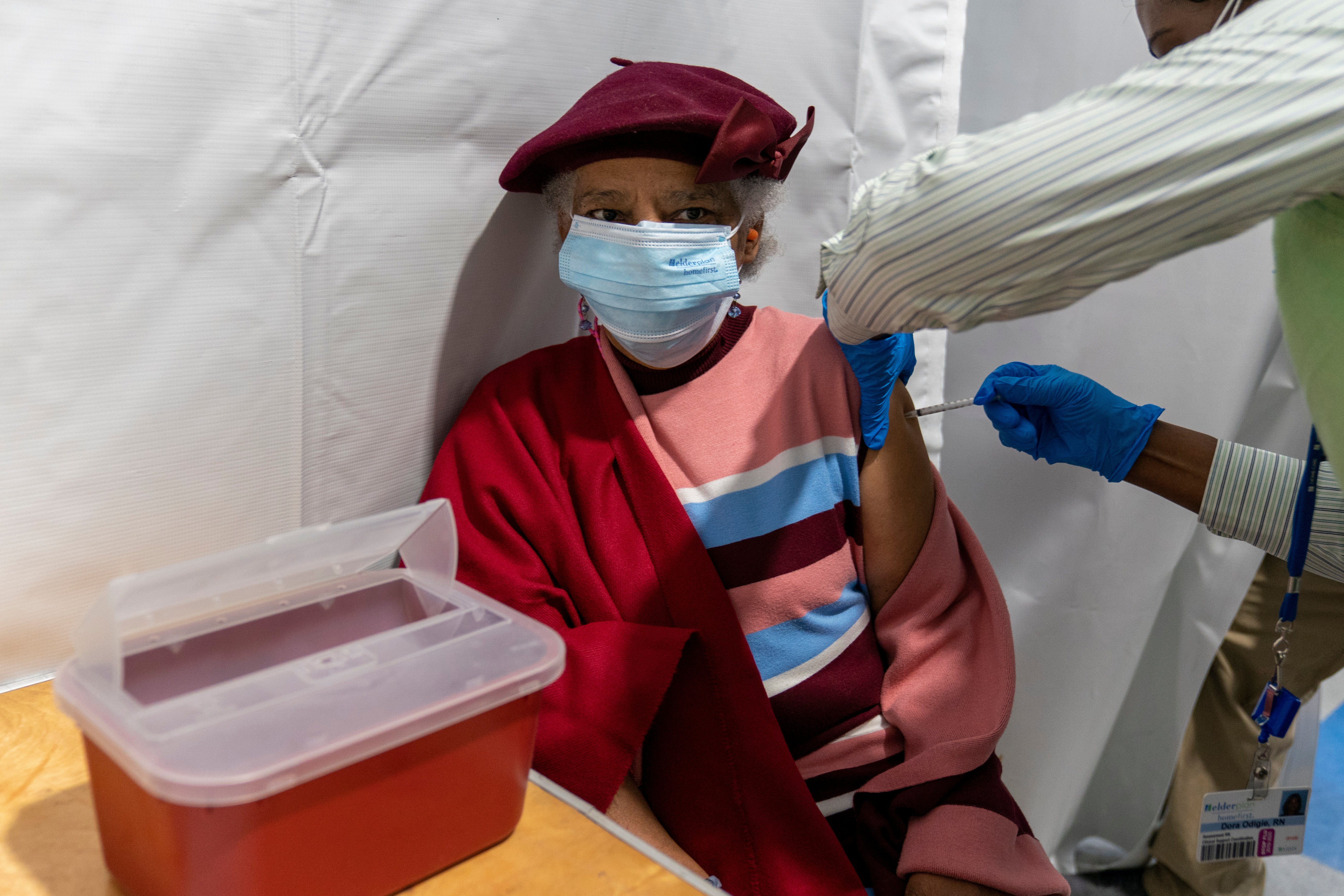Things to Know: Pentagon lends military aid to vaccine push
The Pentagon will deploy more than 1,100 troops to five vaccination centers in what will be the first wave of increased military support for the White House campaign to get more Americans vaccinated against COVID-19

Your support helps us to tell the story
From reproductive rights to climate change to Big Tech, The Independent is on the ground when the story is developing. Whether it's investigating the financials of Elon Musk's pro-Trump PAC or producing our latest documentary, 'The A Word', which shines a light on the American women fighting for reproductive rights, we know how important it is to parse out the facts from the messaging.
At such a critical moment in US history, we need reporters on the ground. Your donation allows us to keep sending journalists to speak to both sides of the story.
The Independent is trusted by Americans across the entire political spectrum. And unlike many other quality news outlets, we choose not to lock Americans out of our reporting and analysis with paywalls. We believe quality journalism should be available to everyone, paid for by those who can afford it.
Your support makes all the difference.Here’s what’s happening Thursday with the coronavirus pandemic in the U.S.:
THREE THINGS TO KNOW TODAY:
— The Pentagon will deploy more than 1,100 troops to five vaccination centers in what will be the first wave of increased military support for the White House campaign to get more Americans vaccinated against COVID-19. President Joe Biden has called for setting up 100 mass vaccination centers around the country within a month. Two of the five new military teams will go to centers opening in California. Coronavirus senior adviser Andy Slavitt says military personnel will arrive at those centers in a little over a week. Three additional centers are expected to be announced soon.
— Tensions are running high in some state capitols over coronavirus precautions after this year’s legislative sessions began with a COVID-19 outbreaks. The Associated Press has tallied at least 40 state lawmakers in roughly one-third of the states who already have fallen ill with the virus this year. More than 330 state lawmakers have contracted COVID-19 since the pandemic began. Most of the tensions are in Republican-controlled statehouses, where Democrats have been raising concerns about GOP colleagues who don’t wear masks or practice social distancing. But some Republicans also are pushing back against statehouse restrictions in Democratic-led legislatures.
— Unemployment agencies across the country were bombarded with so many claims during the pandemic that many struggled to distinguish the correct from the criminal. Simple tax forms are now revealing the extent of the identity theft that made state-run unemployment offices lucrative targets for fraud after millions of people lost their jobs. Terri Finneman, of Lawrence, Kansas, was surprised when she got a form saying she owed taxes on $1,500 in unemployment payments that she never received. In Ohio, the governor and lieutenant governor also learned that fraudulent claims had been filed in their names.
THE NUMBERS: According to data through Feb. 4 from Johns Hopkins University, the seven-day rolling average for daily new cases in the U.S. fell over the past two weeks, from about 187,728 on Jan. 21 to about 130,403 on Feb. 4. Over the same period, the seven-day rolling average for daily new deaths rose from about 3,095 to roughly 3,240.
QUOTABLE: “We’ve got to get this done. We’ve got to get people vaccinated so we can get this country moving again," said 76-year-old nurse practitioner Sigrid Stokes. Stokes is carrying on a life-saving family tradition each time she administers COVID-19 vaccines to her fellow health care workers at a Northern California hospital. Her mother volunteered at a local hospital during the deadly 1918 Spanish flu pandemic.
ICYMI: Residents at an assisted living center near Denver have gotten a taste of sorts of what life was like before the pandemic. Thanks to a “hug tent” set up outside the suburban facility, residents could embrace and hold hands with their families this week. Visitors were separated by construction-grade plastic but could hug through built-in sleeves attached by embroidery hoops. It wasn’t ideal, but visitors and staff say the benefits are clear. A spokeswoman for the center says some residents haven’t had physical contact with their families in almost a year, and a simple hug was like “a huge weight off their shoulders.”
ON THE HORIZON: Coronavirus cases have dropped at U.S. nursing homes and other long-term care facilities over the past few weeks. The dip offers a glimmer of hope that health officials attribute to the start of vaccinations, an easing of the post-holiday surge and better prevention, among other reasons. Statistics show that more than 153,000 residents of the country’s nursing homes and assisted living centers have died of COVID-19, accounting for 36% of the U.S. pandemic death toll. Although experts say the vaccination rollout may be contributing to the drop in cases, other factors are likely playing a larger role. And they caution that threats are still looming, including new strains of the virus.
___
Find AP’s full coverage of the coronavirus pandemic: https://apnews.com/hub/coronavirus-pandemic